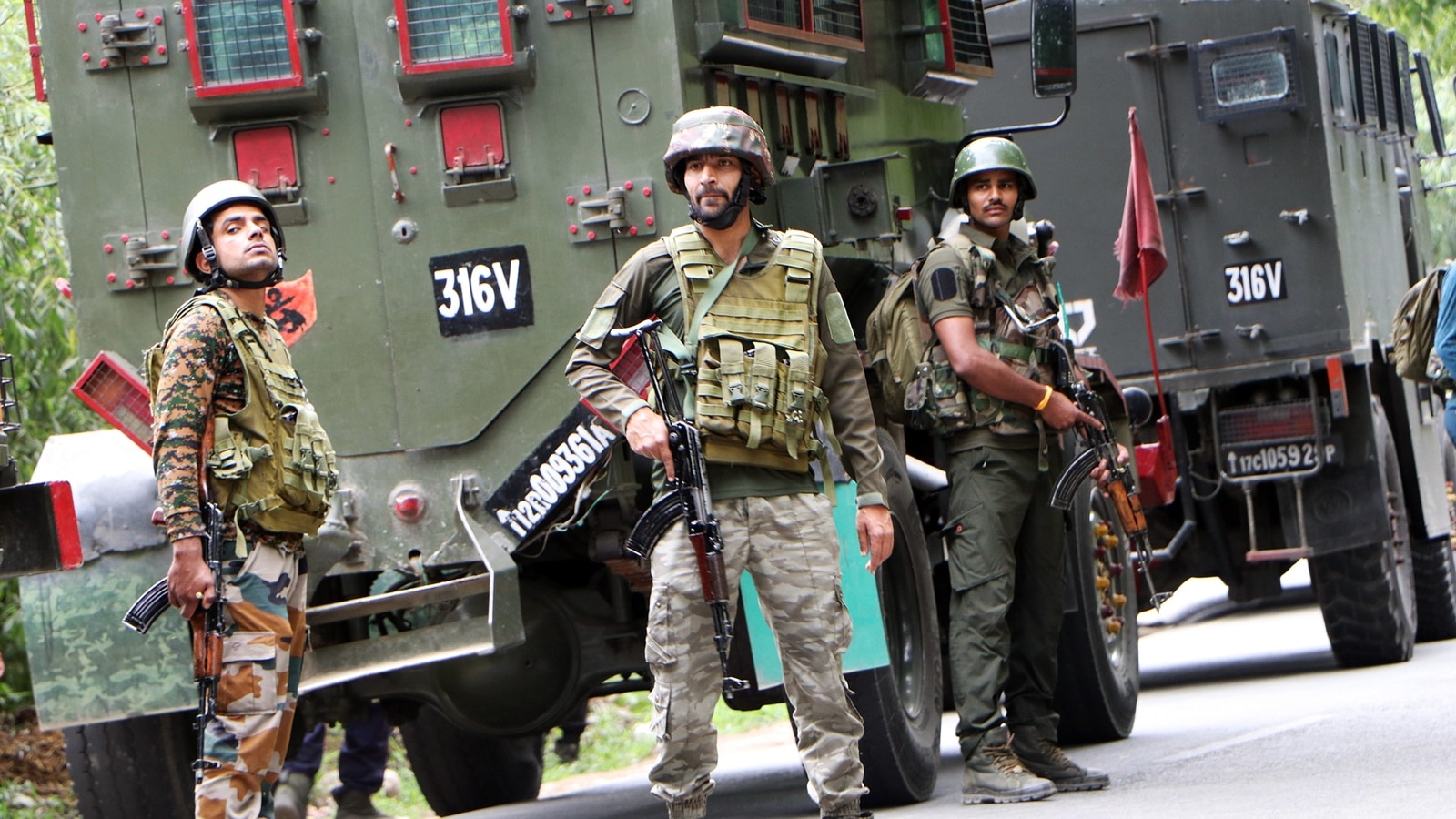Security forces killed six militants in two separate gunfights in south Kashmir’s Kulgam district, ending operations on Sunday more than 24 hours after they began, even as the Indian Army laid to rest two of its soldiers who were killed in the gunfights on Saturday.

The encounters erupted on Saturday in the villages of Modergam and Chinigam, about 20km apart, after security forces received intelligence about militant presence in the area.
Jammu & Kashmir’s director general of police RR Swain called the operation “a big milestone” in improving the security environment.
“On the basis of confirmation of bodies, we have the news of the killing of six terrorists,” Swain told reporters. “Without doubt, this is a big milestone, a progress to strengthen the security environment.”
Read Here | Jammu and Kashmir land finds more than 6,900 bids: Report
On Saturday, officials said they had seen the bodies of four but the gunfights went on till Sunday afternoon.
Four militants and one soldier were killed on Saturday in Chinigam, while another soldier died in Modergam. The remaining two militants were killed Sunday as the Modergam operation concluded.
The first encounter erupted when a joint squad of police, army and Central Reserve Police Force reached Modergam village after they received intelligence about the presence of militants on Saturday afternoon. It was here that lance naik Pardeep Kumar from the 9th Rashtriya Rifles unit of the Indian Army suffered fatal injuries.
The exchange of fire and explosives continued in the night with two militants confirmed dead on Sunday.
The second encounter broke out in the Frisal Chinnigam area on Saturday evening after security established contact with militants during a cordon and search operation. In the exchange of fire, four terrorists were killed and sepoy Pravin Janjal Prabhakar from 1 Rashtriya Rifles took fatal injuries.
Jammu and Kashmir: NIA arrests absconding accused in Pakistan-linked narco-terrorism case
Swain said some of the slain militants were believed to be locals, but their identities and affiliations were still being verified.
The police chief credited local intelligence for the successful operations, saying it indicated growing public support for ending militancy in the region.
“On substantive and messaging level, this is indicative of security architecture and the flow of intelligence from people. This reveals that the fight will reach its logical conclusion. These successes will happen continuously whatever efforts from the other side as they make efforts,” said Swain.
“Our security architecture, including J&K police, Indian Army, agencies and central armed police forces particularly with people’s support, we will indeed win this (fight),” he said, adding: “We think all people are joining this (fight) to save other people’s lives and end the chaos. This is attaining more pace.”
NEED TWO LINES ABOUT RECENT ATTACKS IN SRINAGAR
Army’s commander of Chinar Corps, Lieutenant General Rajiv Ghai, along with J&K DGP Swain offered homage to the two fallen soldiers.
In Jammu, security forces launched a search operation after several rounds of bullets were fired near an army camp in Jammu and Kashmir’s Rajouri district.
Kulgam encounters updates: 2 soldiers, 4 terrorists killed in Jammu and Kashmir
According to officers in the army who asked not to be named, the incident occurred in the Manjakot area of the district on Sunday morning. The forces were conducting a search operation in the Galluti area of the Manjakote sector.
The DGP spoke on the situation in Jammu and said that notwithstanding some incidents, the forces have been able to finish the terror ecosystem in Kashmir.
“Numbers don’t reveal the security situation. We take every incident with seriousness. In the Jammu side there are efforts to activate old (militancy), that is why after the last incident in 2006-07, there have been incidents or attempts now. Obviously, there is a concern. But that doesn’t mean that the enemy has achieved any major success,” he said.
NEED TWO LINES ABOUT RECENT ATTACKS IN JAMMU
He drew a comparison between conducting a terror incident and establishing a support base for terror. “These are two different things. If we talk of Jammu, then go to Gandoh, Doda, Udhampur and other places, you will find, and when you talk to people, you will find that the situation has not remained the same. The ecosystem to spread terror is not there now. That is our biggest achievement. Based on that success, we hope to establish peace and security,” he said.



